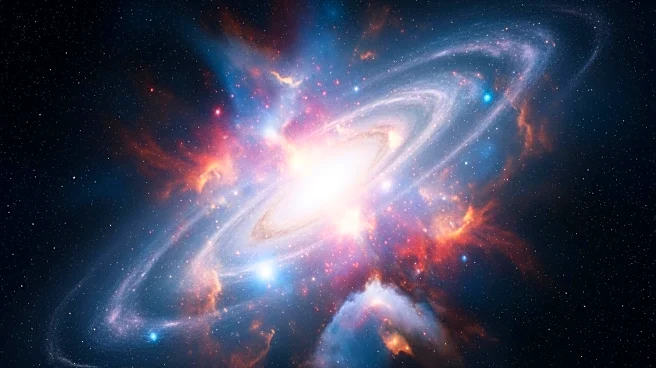What is the story about?
What's Happening?
Recent observations have raised questions about the Big Bang theory, particularly regarding the rate of the universe's expansion. Studies using Cepheid variable stars and supernovae have revealed discrepancies in the Hubble constant, known as the Hubble tension, suggesting the universe is expanding faster than predicted. Additionally, the James Webb Space Telescope has observed fully formed galaxies at look-back times that challenge current models of early universe formation.
Why It's Important?
These findings could lead to significant revisions in the Big Bang theory, impacting our understanding of cosmology and the universe's evolution. The Hubble tension suggests potential changes in dark energy over time, while the presence of mature galaxies at early look-back times may require new theories of galaxy formation. Resolving these issues is crucial for advancing our knowledge of the universe's history and future.
Beyond the Headlines
The challenges to the Big Bang theory highlight the dynamic nature of scientific inquiry and the need for open-mindedness in the face of new evidence. As cosmologists debate these findings, the potential for paradigm shifts in our understanding of the universe underscores the importance of continued research and exploration.















